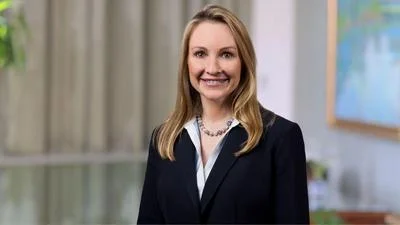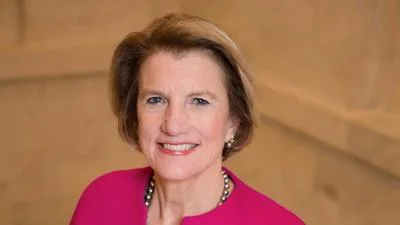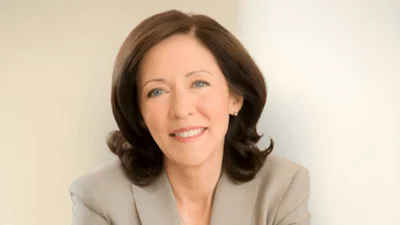Dear Dr. O’Leary:
The Committee on Finance has exclusive jurisdiction over the Medicare program in theSenate, and the Committee on Ways and Means has jurisdiction over the Medicare program in the House of Representatives. Accordingly, we have a responsibility to the more than 40 million Americans who receive health care under the program. The Center for Medicare and Medicaid Services (CMS), the agency responsible for administering the Medicare program, has established quality and patient safety requirements called “Conditions of Participation" (COPs) that hospitals must meet in order to be eligible for Medicare payment. Federal law deems hospitals that are accredited by the Joint Commission on Accreditation of Healthcare Organizations (JCAHO) to be compliant with Medicare requirements, and thus eligible to treat Medicare patients and be reimbursed by Medicare for doing so. No other health care accreditation program shares this unique statutory authority.
At our request, the Government Accountability Office (GAO) initiated an investigation on hospital accreditation and patient safety. In a report released in July 2004, the GAOdetermined that JCAHO’s pre-2004 hospital accreditation process did not identify three-quartersof the hospitals found by state agencies to have serious deficiencies in Medicare requirements.The GAO warned that even “a single deficiency in a Medicare requirement can limit thehospital’s capability to provide adequate care and ensure patient safety and health."
In January 2004, JCAHO introduced a new accreditation process called “Shared Visions- New Pathways". Joint Commission Resources (JCR), a wholly-owned subsidiary corporationof JCAHO, describes this new process as “a complete paradigm shift from a process focused onsurvey preparation and score achievement to one of continuous systematic and operationalimprovement by focusing to a greater extent on the provision of safe, high quality care,treatment, and services" on its website.
It has been more than two years since “Shared Visions - New Pathways" was initiated,and we are interested in learning more about how these changes have improved patient safety.Additionally, we are interested in learning more about the relationship between JCAHO andJCR. Accordingly, please provide the requested documentation and responses to the followingquestions. It is our expectation that you will comply promptly and completely with this request.Failing that, additional avenues will be pursued.
“Shared Visions - New Pathways" (2004 through Present)
The new hospital accreditation program is designed, at least in part, to identify deficiencies in your clients’ hospitals.
a. What percentage of deficiencies is the JCAHO accreditation program designed to identify?
b. What percentage of those hospitals surveyed are found to have deficiencies?
c. What is the average number of deficiencies found among those surveyed?
d. What level of certainty or accuracy does JCAHO guarantee and how does this differ from JCAHO’s pre-2004 hospital accreditation programs?
Please provide a summary of results of unannounced surveys. In addition, please describe the selection process for conducting unannounced surveys and include any information or data that JCAHO has comparing its pre-2004 hospital accreditation program to its post-2004 hospital accreditation program in light of the addition of unannounced surveys. Please explain JCAHO’s rationale for the extensive delay in moving to unannounced surveys.
What percentage of deficiencies identified through JCAHO’s post-2004 hospital accreditation program are in the physical environment COP category versus clinical categories? How does this percentage compare to the percentage from the pre-2004 program?
List the names and titles of all employees and/or consultants and/or others who perform accreditation surveys. Please indicate the region or territory to which each individual identified is assigned.
Please explain the dynamics of survey teams. Please include in your explanation details onsurvey team composition, diversity and credentials typical of team members.
Joint Commission Resources
List the names of all current board members for both JCAHO and JCR. Please include theirterms of service.
Please describe the composition of board members for both JCAHO and JCR in terms of their “diversity" of expertise (e.g., current or former health practitioners, administrators, consumers, payers and others).
Please provide the amount of compensation each JCAHO and JCR board member received in FY2003, 2004 and 2005;
For any individual who received compensation for being a board member or is a member of bothboards, please provide a curriculum vitae, as well as a description of their duties andresponsibilities.
Please list the costs associated with board of directors meetings including the cost of meetings, cost of transportation to/from meetings, off-site costs, meals/entertainment costs.
Please list any luxury items owned by JCAHO, including non-commercial real estate valued over $250,000, vehicles (automobiles, airplanes, yachts), art, or furniture. Please explain how each ofthese items is used and provide documentation regarding such use, including identifying who within JCAHO and JCR has access to the items.
What number and percentage of JCR clients that are subsequently surveyed by JCAHO receive accreditation? How does this compare with the number and percentage of clients surveyed by JCAHO who are not JCR clients? Please provide supporting documentation for these figures.
Please provide a quantitative analysis of fees and length of engagements collected by JCAHO for hospital accreditation surveys of clients who were also clients of JCR.
Please provide a quantitative analysis of fees and length of engagements collected by JCAHO for hospital accreditation surveys of clients who were not clients of JCR.
Are JCAHO hospital accreditation standards and/or processes made available directly orindirectly to JCR? If so, please provide a detailed explanation.
Are JCAHO hospital accreditation standards and/or processes published and publicly available?
Please provide a detailed explanation.
For tax years 2003, 2004 and 2005, please provide an explanation of services or duties preformed in connection with the following payments identified on the JCR’s 990 tax form. Please include total dollar amounts, as well as copies of all contracts or other documents executed in connection with these agreements.
a. Management Fees;
b. Royalty Fee;
c. Funding Agreement (For example: Schedule 7, tax year 2004);
d. Payments due or Transferred to Parent Company (For example: Part I, line 20/Schedule 2;Schedule 9, tax year 2004).
Please summarize activity described on tax year 2004 tax form 990, Schedule 14 as “Continuous Survey Readiness Fees".
Please describe JCR’s relationship with other “Related Organizations" identified on tax form 990 Schedule 13 (tax year 2004).
If any monetary exchanges or agreements that require payments to be made to or from JCR to or from these organizations are (or were previously) in effect, please list amounts and dates paidduring the last 3 years.
Please list the names and positions held of any JCR or JCAHO board members who alsocurrently or previously served on the boards of any of these “related organizations".
We thank you in advance for your cooperation and request that your staff provide a pointof contact for this matter no later than May 23, 2006. Additionally, we request that you provide documents and written responses no later than June 8, 2006. In complying with this request for information, please respond to each enumerated question by repeating the questions, followed by JCAHO’s response.
Sincerely,
Charles E. Grassley Chairman Senate Committee on Finance
Max Baucus Ranking Member Senate Committee on Finance
Pete Stark Ranking Member, Subcommittee on Health,
House Committee on Ways and Means
Cc: The Honorable Michael O. Leavitt Secretary of Health and Human Services The Honorable Mark B. McClellan, M.D., Ph.D.
Administrator, Centers for Medicare & Medicaid Services The Honorable David M. Walker Comptroller General of the United States
Source: Ranking Member’s News









